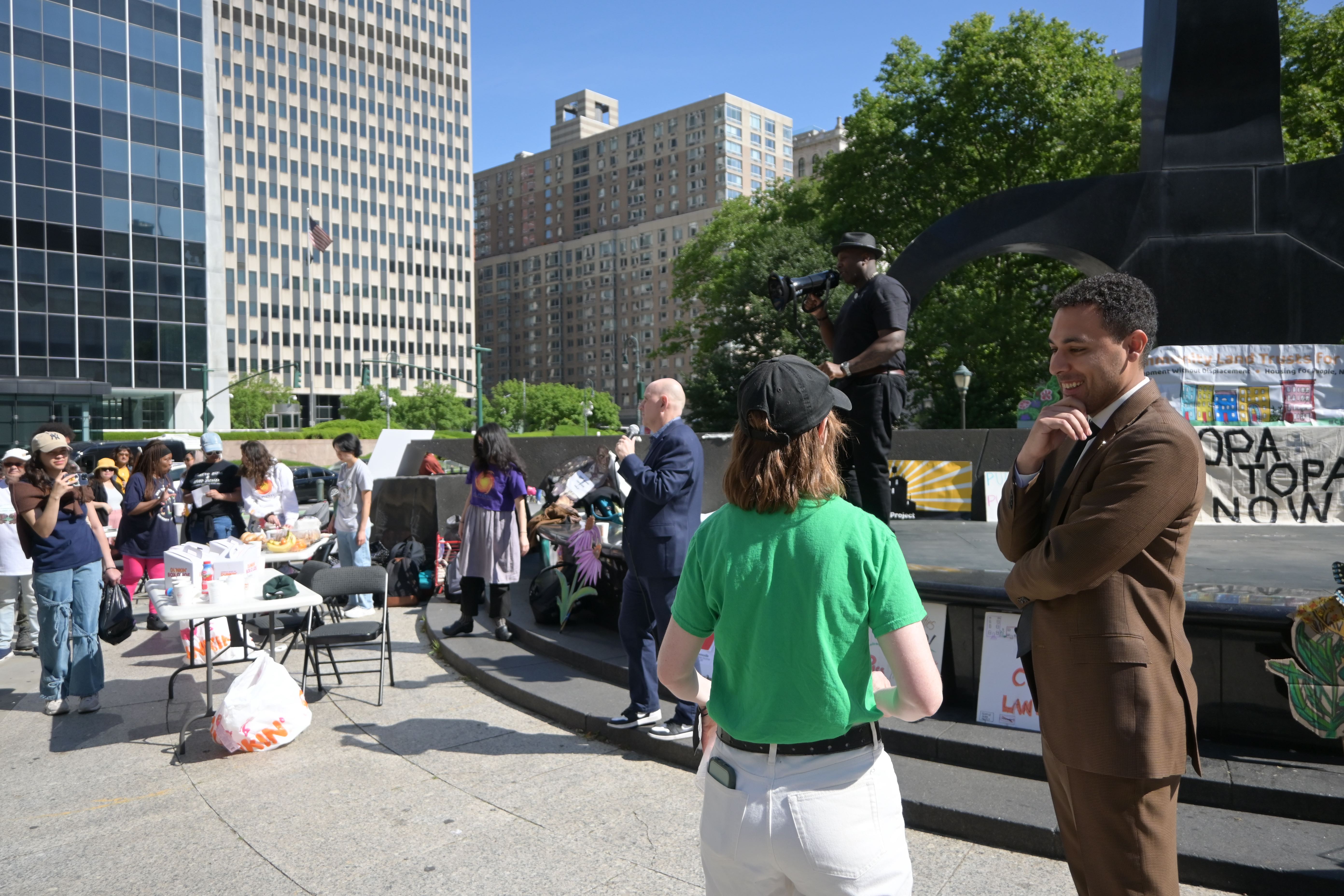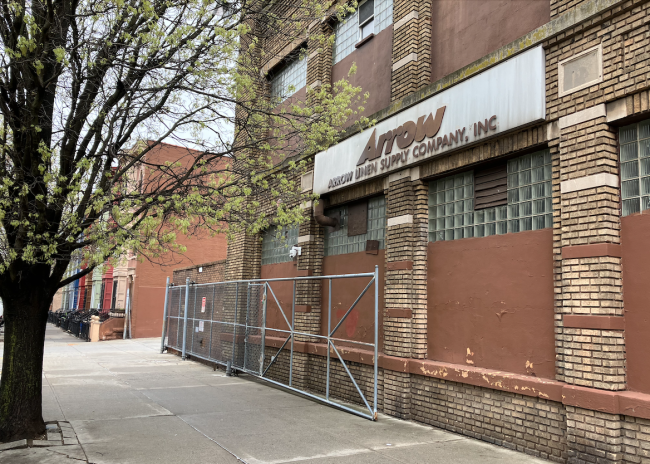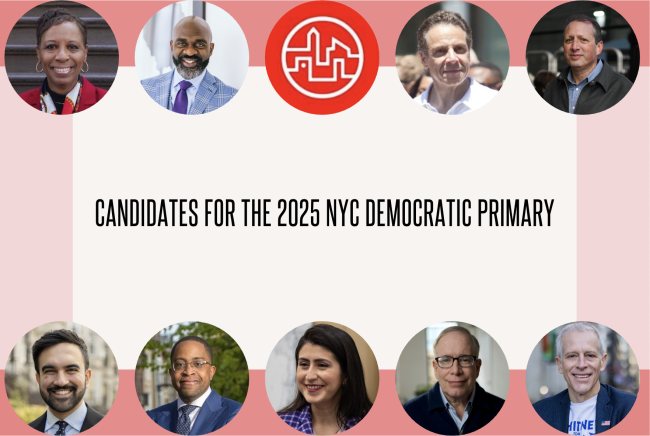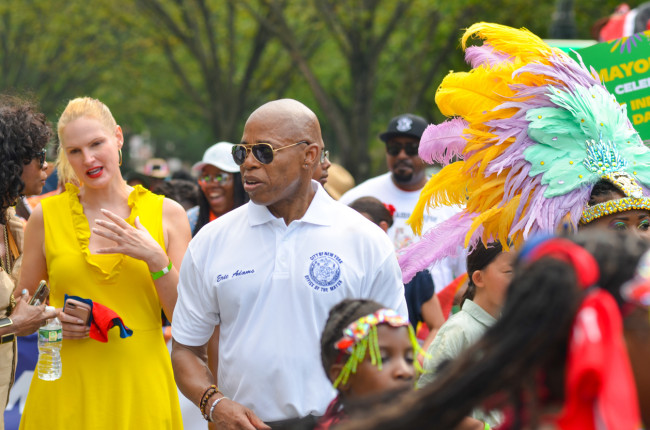Elizabeth Street Garden won its fight. What does that mean for housing development in NYC?
- Elizabeth Street Garden will remain a garden and be required to be open to the public
- Council Member Marte agreed to support two rezonings creating 300-plus new affordable units
- Critics said the move undercuts the city’s commitment to building affordable housing via the City of Yes

Elizabeth Street Garden in Nolita, as seen in November 2023.
iStock
Elizabeth Street Garden will remain undeveloped after New York City leaders backed down from a decade-long fight to build affordable senior housing on the city-owned lot.
Instead, city officials said on Monday that the housing slated for the garden will be built on a nearby private site.
Mayor Eric Adams and other city leaders painted the move as a win-win: the 123 affordable apartments will be shuffled to a nearby block and the garden will not be disturbed. (The senior housing development plan, dubbed Haven Green, also included plans for green space.)
But the decision not to build on Elizabeth Street Garden comes as many elected officials—the City Council, the many candidates for mayor, and even Adams—are supporting new development to counter the skyrocketing rents forcing some New Yorkers out of the city. Just last year, Adams, the City Council, and the state poured hours (and billions) into City of Yes for Housing Opportunity, a plan to build 80,000 new housing units over the next 15 years.
The sudden about-face on Monday raises the question of whether NYC’s elected officials have the political will to make good on City of Yes.
Read on for everything you need to know about the Elizabeth Street Garden decision, and what it means for NYC.

The garden saga, in brief (ish)
In 2012, New York City set out to develop Elizabeth Street Garden as affordable housing, which it had leased to gallerist Allan Reiver since the 1990s for $4,000 a month. (Yes, rent for the 20,000-square-foot garden is cheaper than the median rent in Manhattan, at $4,571 per month.)
Reiver, who used the space to display sculptures and other artifacts, fought the development in court and opened the garden to the public in 2013, hoping to win the public’s sympathy. Before that year, the only way to access the garden was through his nearby gallery.
Proponents of the garden later formed a nonprofit—run by Reiver’s son—to fight the development, including in federal court. But the garden fell behind on its rent, owing the city around $100,000 as of late last year.
The city served the garden with an eviction notice in March, and it’s yet unclear if it is paid up. (Garden representatives did not respond to a request for comment.)
In a last ditch effort to save the space, locals and celebrities—including Robert De Niro, Martin Scorsese and Patti Smith—turned out in droves to fight the development plan. Those efforts were finally successful on Monday, when First Deputy Mayor Randy Mastro announced the decision to save the greenery and nix the development plan.
A green new deal?
In exchange for keeping the garden, Council Member Christopher Marte agreed to support two nearby rezonings: a private development at 156-166 Bowery, where the developer agreed to take the 123 affordable units originally planned for Elizabeth Street Garden, and a city-owned lot at 22 Suffolk Street that could hold around 200 affordable apartments.
“The private lot on Bowery Street was going to be a market-rate or luxury development with no affordable housing units,” Marte said. The developer “agreed to take at least 123 units that were slated for Elizabeth Street Garden to be placed there. So we’re putting affordable housing in a site that otherwise wouldn’t have any.”
He also signed onto an existing plan to redevelop 100 Gold St., home to the Department of Housing Preservation and Development, which will add at least 300 affordable units.
Marte said the decision to save the garden wasn’t because of a “not-in-my-backyard” opposition to development, but a choice to have both new housing and green space.
“We have a site that's nearby where we can build affordable housing and not pit these things against each other,” Marte said. “The community is saying, yes we’re open to development, let’s just make sure that we do it without the elimination of the few green spaces that we have.”

Housing delayed
But the move means that the senior New Yorkers who are hoping to get one of the affordable apartments may have to wait a bit longer.
Marte was optimistic that the Suffolk site could be rezoned quickly because it sits on public land, but the Bowery Street development would have to go through a full Uniform Land Use Review Procedure (ULURP)—a series of public hearings and reviews that could take nine to 10 months, he noted. The 100 Gold site is unlikely to come before the City Council before 2027, Marte said.
While the project at 22 Suffolk Street could move more quickly, the city will still have to secure financing for the project amid high interest rates, something that will make the development more challenging, said Iziah Thompson, senior policy analyst at the Community Service Society of New York.
The move not to build on Elizabeth Street Garden—which already went through a ULURP process in 2019—drew criticism from housing advocates and former city officials. Notably, former First Deputy Mayor Maria Torres-Springer, who resigned from her post amid the mayor's corruption and bribery scandal, critiqued the decision on X (Twitter).
“A heat wave is deadly for seniors without safe, affordable housing,” Torres-Springer posted on Monday, referencing the hot weather blanketing NYC. “They deserve more than a promise. Housing delayed is housing denied.”
Will NYC say yes to housing?
To put it bluntly, the move undermines the city’s commitment to building affordable housing through City of Yes, Thompson said.
“A city that can't build 120 low-income, senior units is not really a city saying yes to housing,” Thompson said.
The decision not to build on Elizabeth Street Garden also undermines the city’s trust with developers, said Rachel Fee, executive director of the New York City Housing Conference, a pro-affordable housing development nonprofit. Fee said she spoke with an affordable housing developer on Monday that questioned whether the city would follow through on its commitments in the future.
“How are we supposed to add a little bit more housing in every neighborhood when the wealthiest and loudest voices are allowed to undo years of planning to address an affordability crisis?” Fee asked.
Annemarie Gray, executive director of pro-development organization Open New York, questioned whether the city would follow through on its plans for housing on the Suffolk and Bowery sites.
“We just turned our back on a project that has been ready, but delayed in bad faith for many, many, many years,” Gray said. “I do not believe that the deal that the administration claimed that they cut is at all serious, and nothing about it is guaranteed to actually result in housing in any reasonable timeframe.”



























